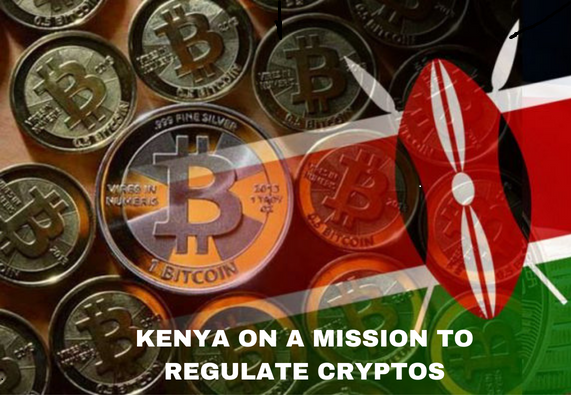
KENYA REDUCES TAX BURDEN FOR DIGITAL ASSETS (CRYPTOCURRENCY) TRANSACTIONS
In a significant development for Kenya’s burgeoning cryptocurrency and digital asset ecosystem, Members of Parliament have recently voted to repeal the contentious 3% Digital Asset Tax (DAT), replacing it with a more industry-friendly 10% excise duty on transaction fees. This move signals a commitment to fostering innovation and reducing the cost burden for users in one of Africa’s most dynamic digital asset markets. The amendments were part of the Finance Bill, 2025, which was passed by the National Assembly in mid-June 2025 and subsequently assented into law by President on 26th June 2025. The Act took effect on 1st July 2025.
Background
The journey of digital asset taxation in Kenya has seen a notable evolution, reflecting the government’s attempts to regulate and derive revenue from this rapidly growing sector while also responding to industry feedback. The Introduction of the 3% Digital Asset Tax (DAT) was initially introduced into Kenyan law through the Finance Act, 2023 (No. 4 of 2023). This Act inserted a new Section 12F into the Income Tax Act (Cap. 470). Section 12F (1) of the Income Tax Act (as inserted by Finance Act, 2023) stipulated that “a tax to be known as digital asset tax shall be payable by a person on income derived from the transfer or exchange of digital assets.”
The tax was set at a rate of 3% on the gross value of the transfer or exchange of the digital asset. Section 12F (2) mandated the owner of a platform or the person facilitating the exchange or transfer to deduct the digital asset tax and remit it to the Commissioner within five working days after making the deduction. The Digital Asset Tax became effective on 1st September, 2023.
From its inception, this tax faced significant criticism from cryptocurrency exchanges, blockchain innovators, and users. The primary concern was that taxing the gross value of transactions, rather than just the profit or gain, could lead to scenarios where users incurred tax liabilities even if they made a loss on their trades. This was widely seen as punitive and a disincentive for growth within the digital asset space, potentially driving activity underground or to offshore platforms.
New Era under the Finance Act, 2025
The recent legislative changes, spearheaded through the Finance Act, 2025 have effectively repealed the controversial DAT. The Finance Act, 2025 (yet to be fully published, but based on parliamentary committee reports), specifically repealed Section 12F of the Income Tax Act. This action effectively removes the 3% Digital Asset Tax on the gross value of digital asset transfers or exchanges.
In place of the repealed DAT, the Finance Act, 2025, has introduced an excise duty of 10% on the transaction fees charged by exchanges and digital wallets. This amendment falls under the Excise Duty Act (Cap. 472), which governs excisable goods and services. While the specific section number in the Excise Duty Act for this new provision will be confirmed upon gazettement of the Finance Act, 2025, the intent is to tax the service provided by the virtual asset service providers, rather than the underlying asset transfer itself.
The decision to repeal the 3% DAT and introduce an excise duty on transaction fees is largely attributed to the robust lobbying efforts by various stakeholders in Kenya’s crypto ecosystem, including the Virtual Assets Chamber of Commerce (VACC) and local and regional VASPs. These groups argued that the previous tax model was unsustainable and detrimental to innovation. The new excise duty model is seen as:
- It taxes the service fee, which represents a clear income stream for the service provider, rather than the volatile gross value of a digital asset transaction. This reduces the risk of taxing capital losses.
- While users still bear the cost, the 10% on a smaller transaction fee is expected to be significantly lower than 3% on the entire transaction value, potentially encouraging more on-chain activity and reducing the incentive to avoid regulated platforms.
- This approach moves Kenya closer to models adopted in other jurisdictions that focus on taxing services or realized capital gains, rather than the transaction’s full value.
This legislative amendment is a significant win for the Kenyan digital asset community. It is expected to lower transaction costs so as to make digital assets more attractive for trading, payments, and other use cases, potentially driving increased adoption. The shift demonstrates a more nuanced understanding from the government regarding the unique nature of digital assets, moving towards a more pragmatic regulatory environment. A more favorable tax regime could entice more international digital asset businesses and investors to consider Kenya as a hub for their operations in Africa. By making the tax burden more reasonable, users and platforms might be more inclined to comply with tax regulations, leading to better revenue collection for the Kenya Revenue Authority (KRA) in the long run.
While the new 10% excise duty on transaction fees will still introduce a cost, it represents a considerable improvement over the previous regime. This legislative update underscores Kenya’s dynamic approach to integrating emerging technologies within its economic framework, continuously adapting its laws to foster growth while ensuring fiscal responsibility. The digital asset sector will keenly observe the practical implementation of these changes and their impact on market dynamics.
For more information, please contact us on info@aowangaadvocates.com or +254794600191.
At A.O.WANGA ADVOCATES we are happy to assist you with all matters relating to digital assets in Kenya.
All rights reserved for A.O.WANGA ADVOCATES
www.aowangaadvocates.com






Leave a Reply